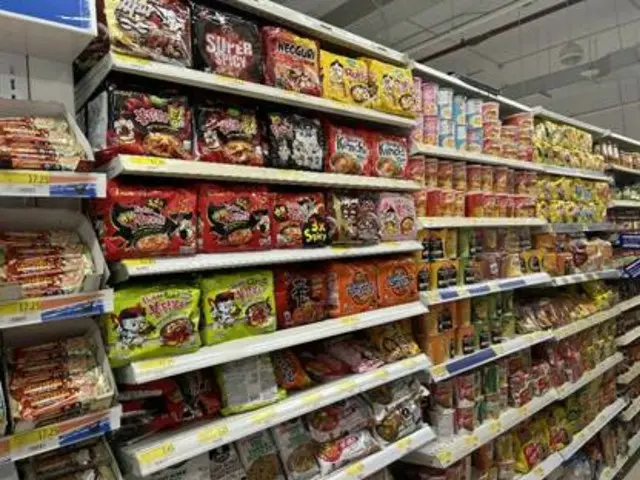It is so popular that it accounts for 40% of the total import value of ramen. According to the Korea Trade and Investment Promotion Corporation (KOTRA), South Korea's ramen export value to the UAE in 2022 will be 17.
It recorded $402,000 (approximately 2.57 billion yen). This accounted for approximately 40% of the UAE's total ramen import value during the same period. South Korea is followed by Indonesia (9.1%) and Malaysia.
(8.9%), followed by China (6.6%) and Singapore (4.6%). Until 2015, ramen imports from Malaysia, the Philippines, and Singapore were at the top of the list.
In 2017, the value of imports from South Korea approximately doubled, and since then South Korea has steadily maintained its number one position in the UAE's ramen market share.
According to Euromonitor, a global market research organization, 202
As of 2019, the UAE ramen market size was $119.7 million (approximately 17.7 billion yen), an increase of 6.2% compared to the previous year. In addition, it will continue to grow sustainably in the future, and by 2027 its scale will reach
The amount is expected to exceed $140 million (approximately 20.6 billion yen). Looking at the market size for each item, bag ramen accounts for approximately 71% of the market, with UAE consumers preferring cup ramen to cup ramen.
It can be seen that they also prefer bag ramen. In the case of non-Halal ramen products, they are imported and distributed through local Korean supermarkets, and are not only available to Koreans.
Many foreigners from non-Muslim countries also visit and purchase ramen products. In addition to Korean supermarkets, Korean-made ramen is easily available and sold at general grocery stores and supermarkets.
The types of products available are also diversifying. Korean content is gaining popularity, and interest in not only the content but also Korean food, cosmetics, and culture is increasing. KOTRA officials said, ``This is an example.
Jung Kook, a member of the Korean idol group BTS, who has gained fans all over the world, introduced a recipe for Korean ramen during a live broadcast where he interacted with fans, and it became a hot topic locally.
"Bulguri ramen, also known as ramen made by mixing Nongshim's 'Noguri Ramen' and Samyang Foods' 'Bulda Gukbokkummyeon,' has been reported in local media to be Korean-style."
It is pronounced as ``Bulguri'' or ``Bulgeuri'' as it is pronounced,'' he said, conveying the atmosphere of its popularity locally.
Indomie, an Indonesian company, and Nestlé, a global food company that started in Switzerland,
Maggi, which was acquired by Nestle, and Singapore's Koka are the three traditional ramen brands in the UAE. The product volume is small and can be eaten easily.
It has the advantage of being relatively cheap. South Korea's Nongshim is also among the top five brands by market share. A KOTRA official said, ``Instant noodles are a universal food for Koreans.
``The UAE is a food that often appears in media such as TV series and movies, so the curiosity aroused by the content often leads to actual consumption.''
"As they make up about 90% of the population, their food consumption is not biased but diverse, and there are many Asians who are actively consuming Korean ramen."
Furthermore, ``When entering the UAE market, if the product does not contain meat or meat processed products, halal certification is not necessarily required.
"It is not an essential element," he said, adding, "However, obtaining halal certification has the advantage of lowering the initial barrier to entry into the market and diversifying distribution channels, so we are considering obtaining halal certification."
It's worth a try," he added.
2023/09/17 07:03 KST
Copyrights(C) Edaily wowkorea.jp 107

